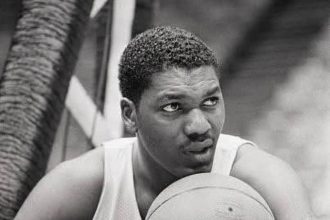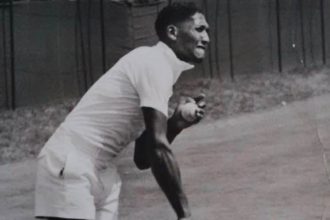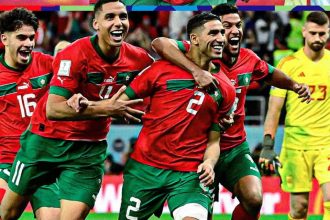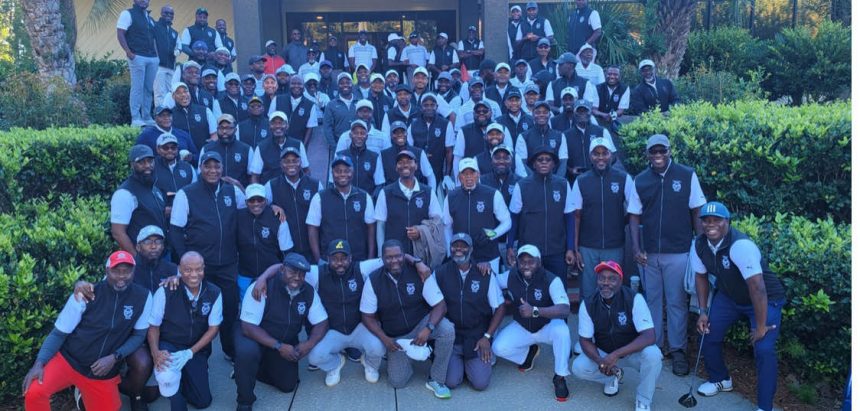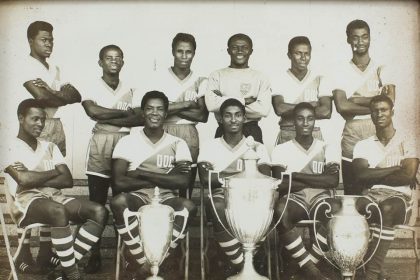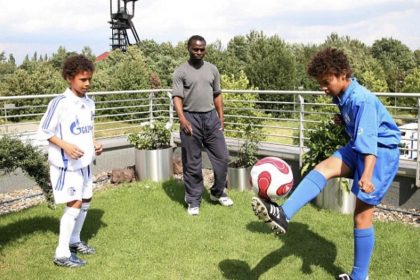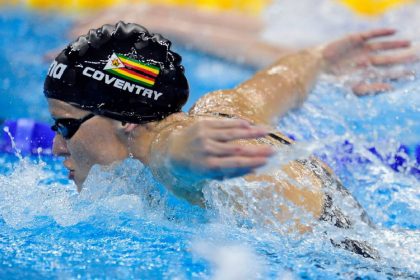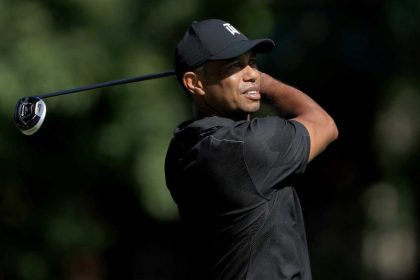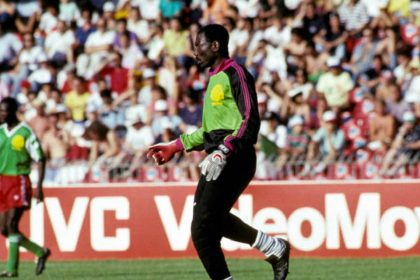Golf has long been associated with images of well-to-do individuals leisurely swinging clubs on lush green courses, sipping drinks at exclusive clubs, and discussing business deals in a privileged atmosphere. However, this belief overlooks the profound accessibility and inclusivity that golf offers to people from all strata of society. In Africa, where diversity and passion for sports abound, it is important to dispel the myth that golf is solely for the wealthy elite. It is in fact crucial to recognize golf’s capacity to promote social integration, personal development, and economic opportunities for individuals across the socioeconomic spectrum.
In most golf courses across Africa, it is evidently sure that most people living around the golf courses are mostly employed as caddies and course workers who in turn become skillful players of the game because of proximity. Therefore, it is safe to say that the knowledge of the sport, garnered by these caddies and course workers, has nothing to do with their social status.
Golf is a sport that transcends socioeconomic barriers, providing opportunities for individuals of varying backgrounds to engage in physical activity, build friendship and foster individual growth. Contrary to popular belief, one does not need extravagant wealth to enjoy a round of golf. Many public courses offer affordable and flexible rates for players of all income levels, making the sport accessible to a broader demography. Additionally, initiatives such as youth competitions, few corporate efforts and charity events further avail more people access to golf, allowing individuals from marginalized communities to participate and benefit from the sport.
Furthermore, golf serves as a platform for social integration and networking, facilitating interactions among people from diverse backgrounds. Unlike some sports, golf can be played by individuals of varying ages, genders, and abilities, fostering inclusivity and promoting social cohesion. Golf clubs and courses often serve as hubs for community gatherings, where people can come together, share experiences, and forge lasting connections. Through participation in golf, individuals have the opportunity to interact with peers, mentors, and role models, expanding their social circles and fostering a sense of belonging.

One shining example of unity and cultural preservation is the Nigerian American Golf Group (NAGG), founded by Nigerian-born Owen Ogufere in the United States. This group has successfully aided in the cultural transition of Nigerians moving from Nigeria to America. In addition to helping to hone golfing skills, the group provides a supportive community for Nigerians to connect with others who share their Nigerian heritage and culture.
Unlike many organizations in Nigeria that have struggled to attract members from various ethnic backgrounds, golf has proved to be a unifying force through the Nigerian American Golf Group. As the largest Nigerian golf group globally, the organization hosts regular social gatherings, three major tournaments annually, family-oriented events, and fosters a culture of support and camaraderie among its members. Through this platform, individuals are able to celebrate their shared heritage, build lasting relationships, and uplift one another.
The group’s latest outing, which was its 23rd edition that took place at Horseshoe Bay in Texas, United States from November 30, 2023 – December 03, 2023 was a huge example of the noble advantages of golfing to bring diaspora Africans together outside the shores of the continent.
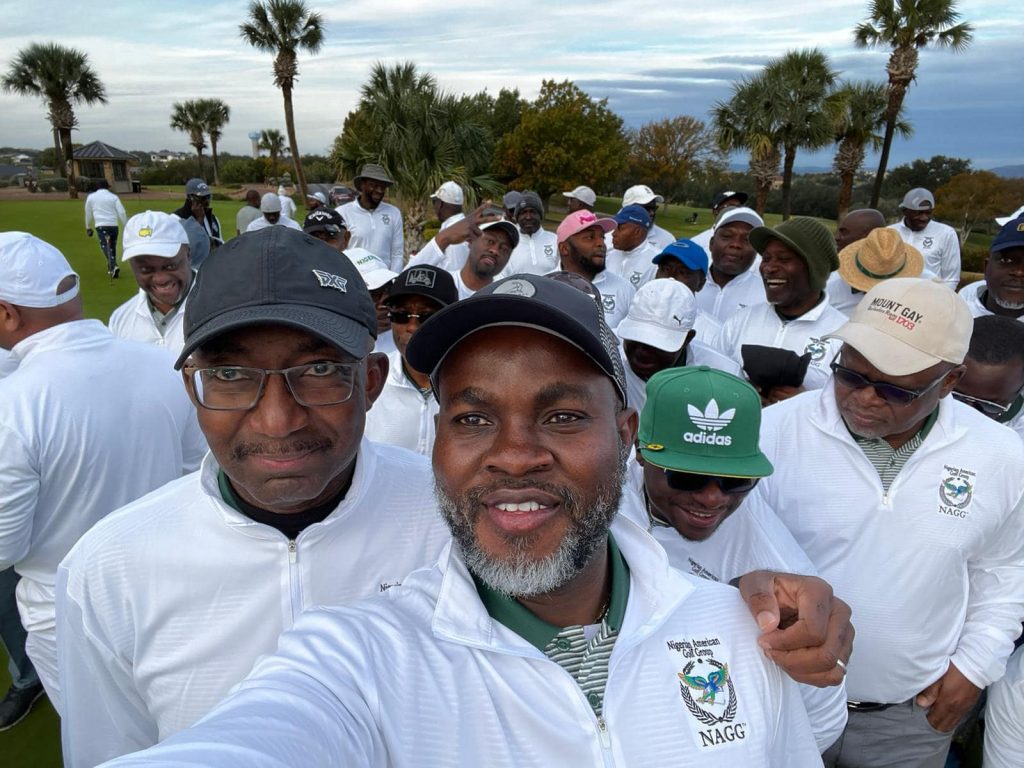
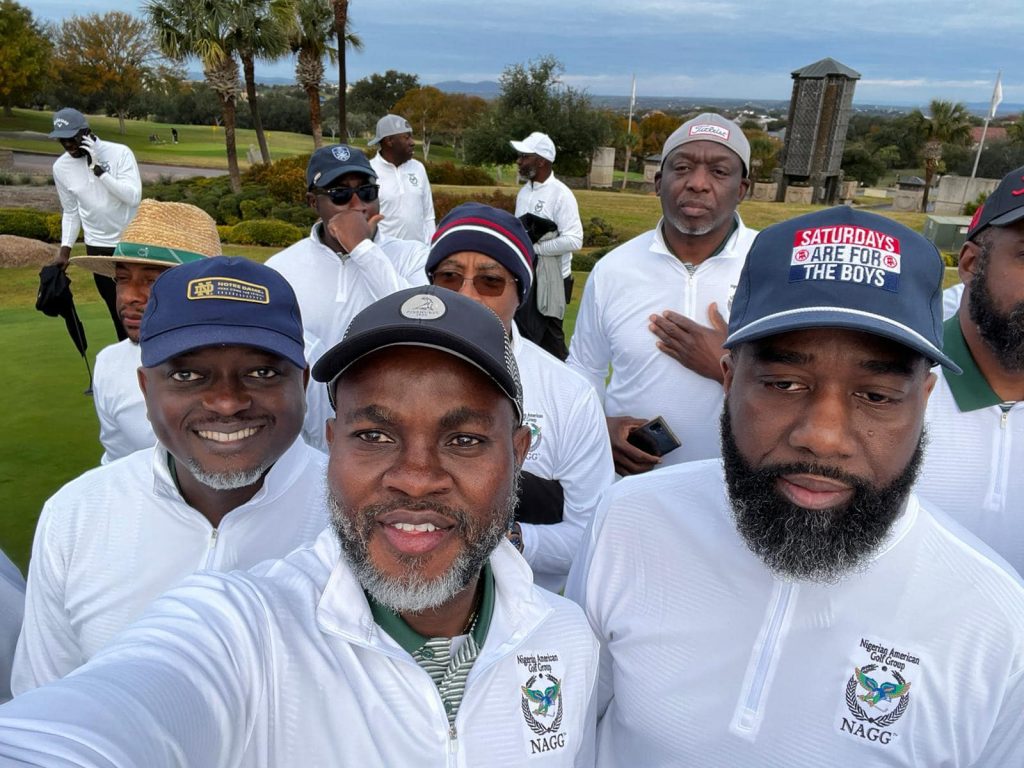

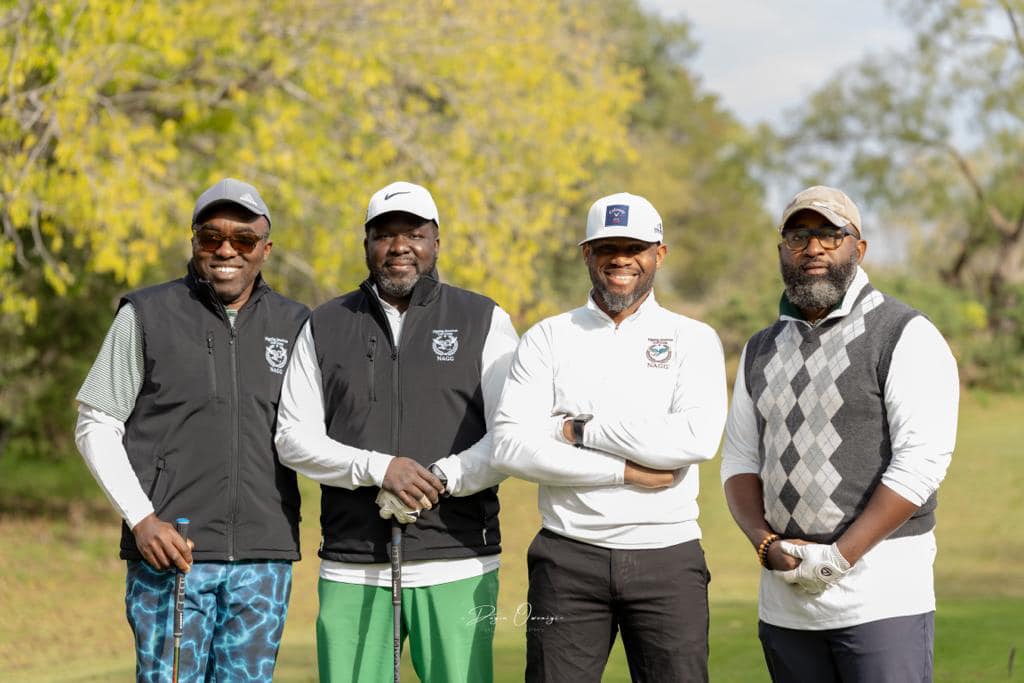
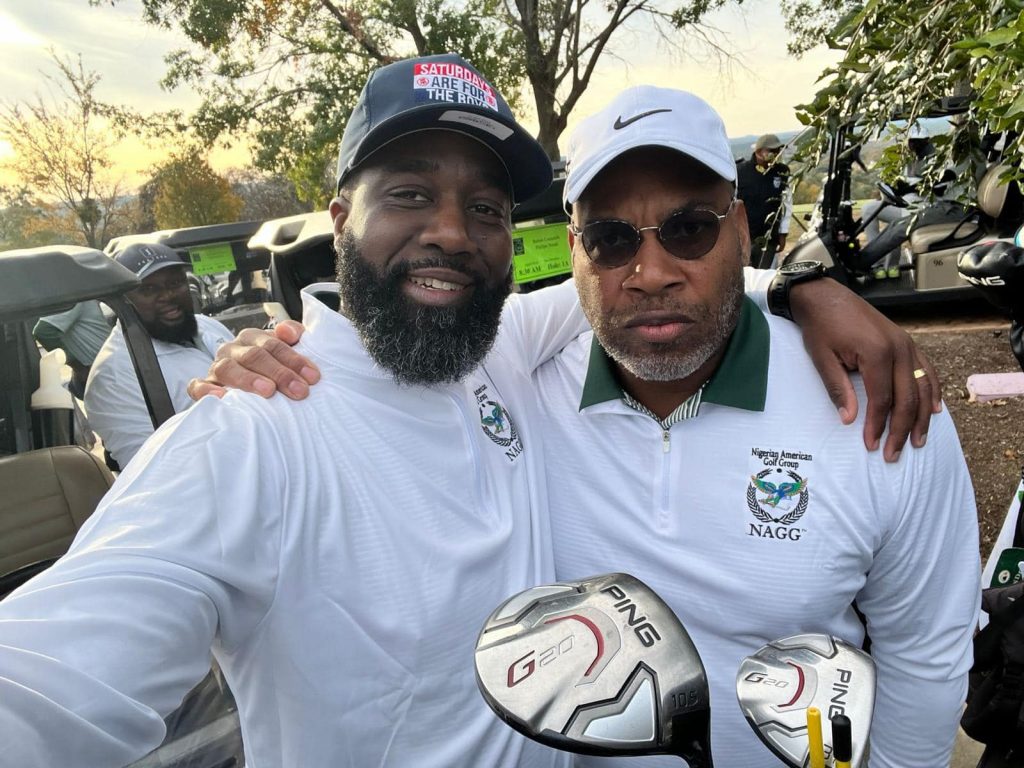
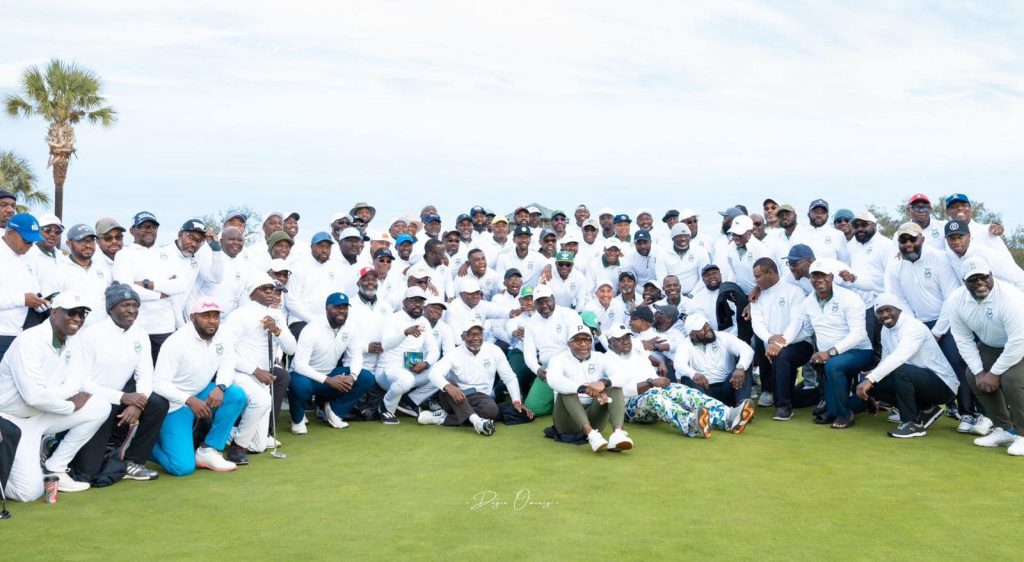
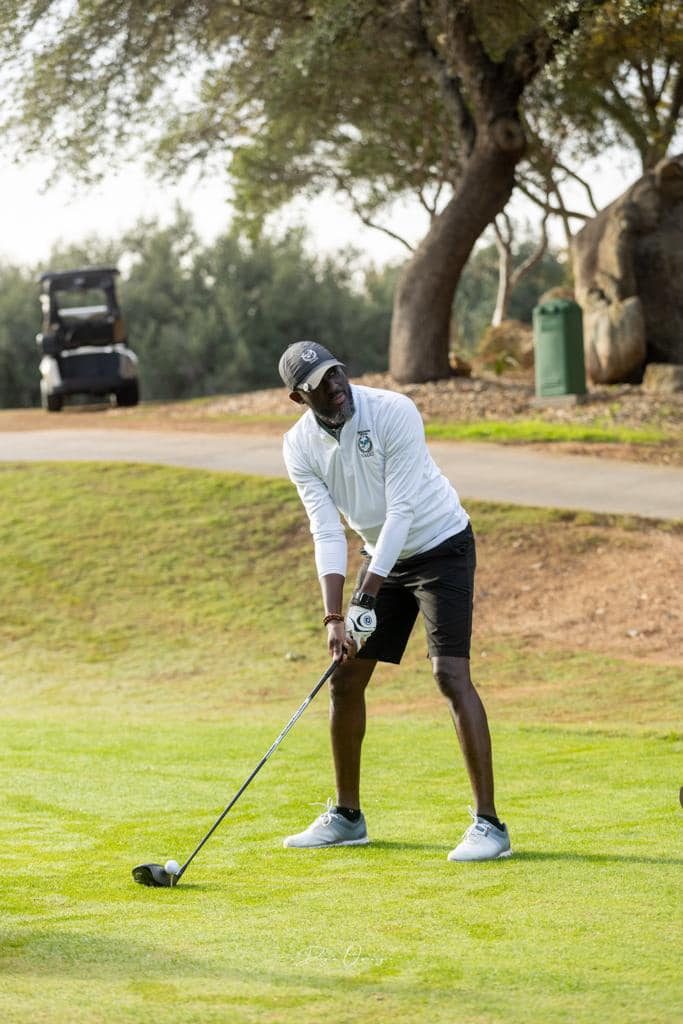
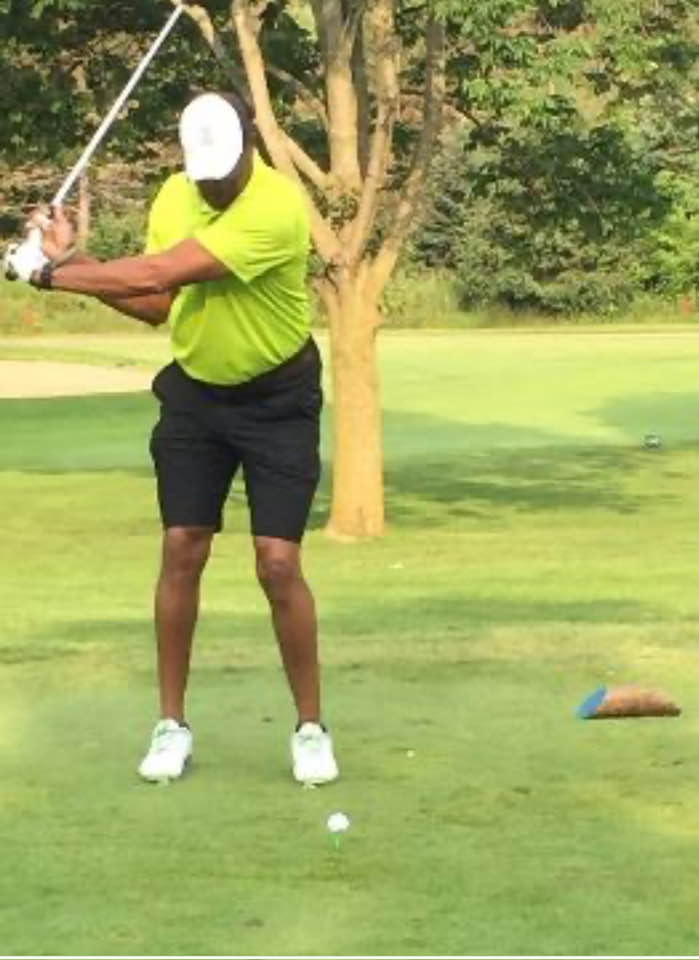
The next event, which will be the first in this calendar year is the 24th outing of the group in Las Vegas, NV taking place between April 04 2024 – April 07 2024. There is also the Kano Golf Club, founded in 1908, which holds a unique place in West African history as the oldest and most esteemed golf club in the region. Its establishment is intertwined with the conquest of Kano, a commercial city in the northern part of Nigeria by the Royal West Africa Frontier Force, led by Lord Frederick Lugard. Over decades, the Kano Golf Club has witnessed significant events, such as the 1922 tournament organized by Barclays Bank and a visit from Prince Edward of England in 1927. Notably, the iron chair he sat on remains at Hole No. 3, now part of a Nigerian Army heritage site.
This was revived recently under the Leadership of David Emiana, the Vice Captain of Kano Golf Club as the “Captain’s Day Tournament”. Twenty professional golfers and 231 amateur players all over West Africa have been registered for this inaugural edition of the tournament. The event spans two days, with the Emir of Kazaure, Najib Hussaini Adamu, playing alongside various captains of industries and the newly-elected captain, Ambassador Ali Magash to shore up business relationships across diverse social strata in West Africa.
Golf offers numerous personal development opportunities, instilling valuable life skills and promoting holistic well-being. Beyond physical fitness, the sport emphasizes discipline, patience, and resilience—qualities that are essential for success both on and off the course.
From setting goals and managing setbacks to practicing self-control and sportsmanship, golf cultivates a mindset of continuous improvement and personal growth. Additionally, the outdoor nature of golf promotes mental health and stress relief, providing players with a therapeutic escape from the pressures of daily life.
Economically, golf contributes to job creation, tourism, and economic development, generating opportunities for individuals and communities to thrive. Golf courses require a diverse workforce, including maintenance staff, instructors, and administrative personnel, providing employment opportunities across various skill levels. Moreover, golf tourism attracts visitors from far and wide, stimulating local economies and supporting small businesses in hospitality, retail, and entertainment sectors. By investing in golf infrastructure and promoting the sport’s accessibility, governments and private stakeholders can unlock the economic potential of golf and create sustainable pathways for growth and prosperity.
In conclusion, golf is not just a pastime for the affluent; it is a sport for all, capable of bridging divides, empowering individuals, and driving socioeconomic progress. By challenging stereotypes and promoting inclusivity, we can unlock the full potential of golf as a catalyst for positive change in African communities. Whether on the fairways or in the clubhouse, let us embrace the diversity and richness that golf has to offer and work together to ensure that everyone has the opportunity to experience the joys and benefits of this timeless sport.
References
- 251 Players Set To Tee Off At Inaugural Captain’s Golf Tourney In Kano by Ibraheem Abdulaziz for Daily Trust 4 Feb 2024
- The smooth integration of Nigerian migrants in America through Golf by Owen Ogufere 2nd of March 2024
- Contribution from Owen Ogufere, the founder of Nigerian-American Golf Group (NAGG)
Edited by Bimbo Ajayi.


